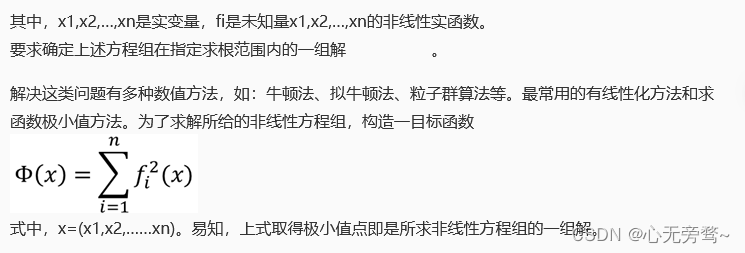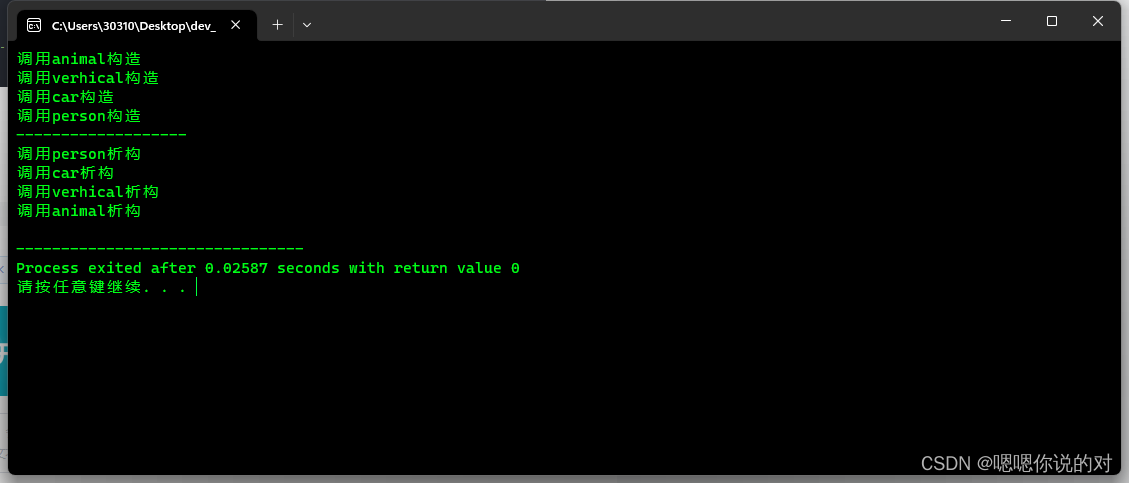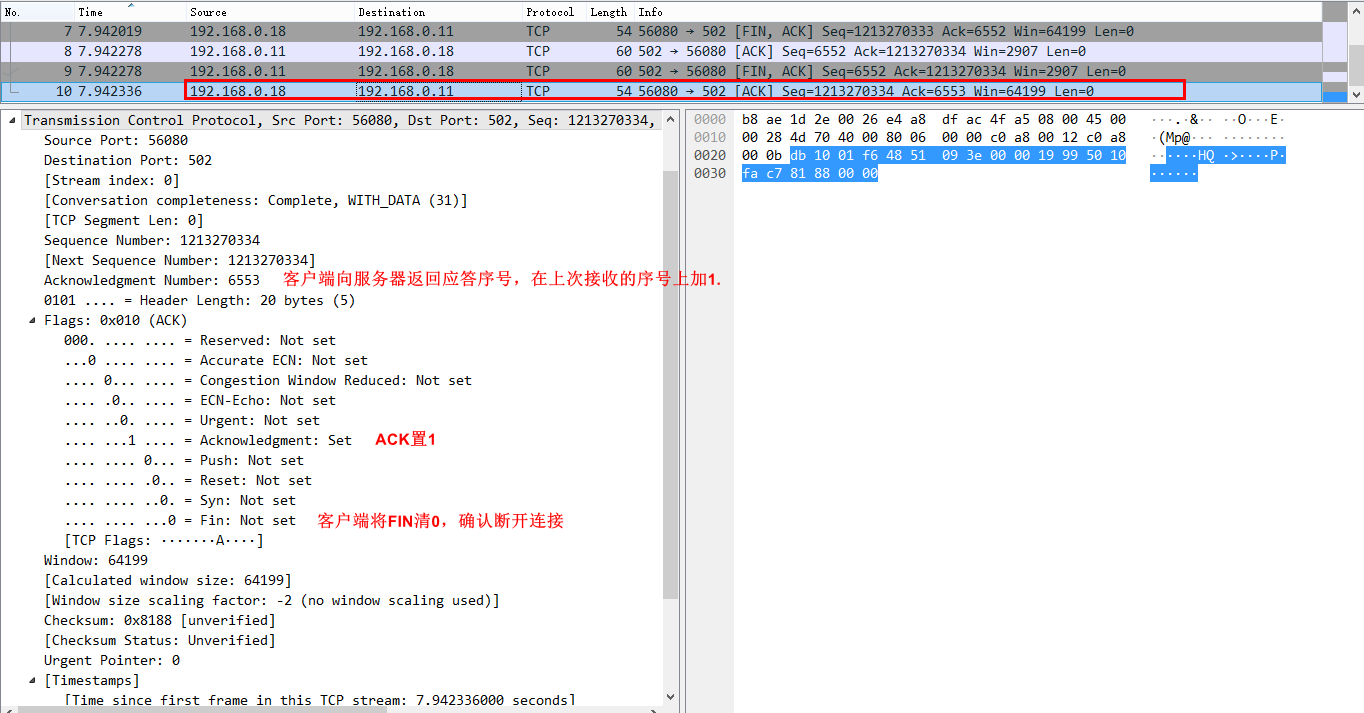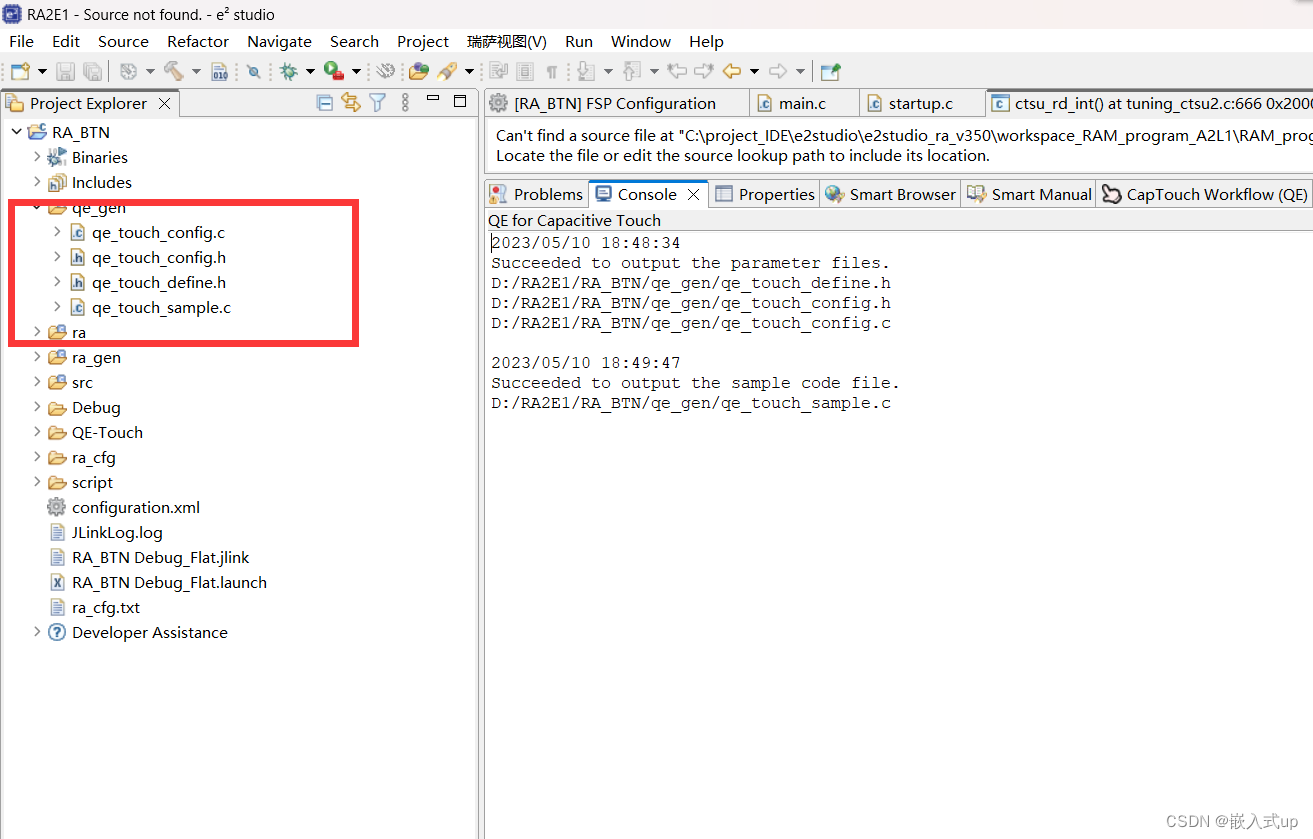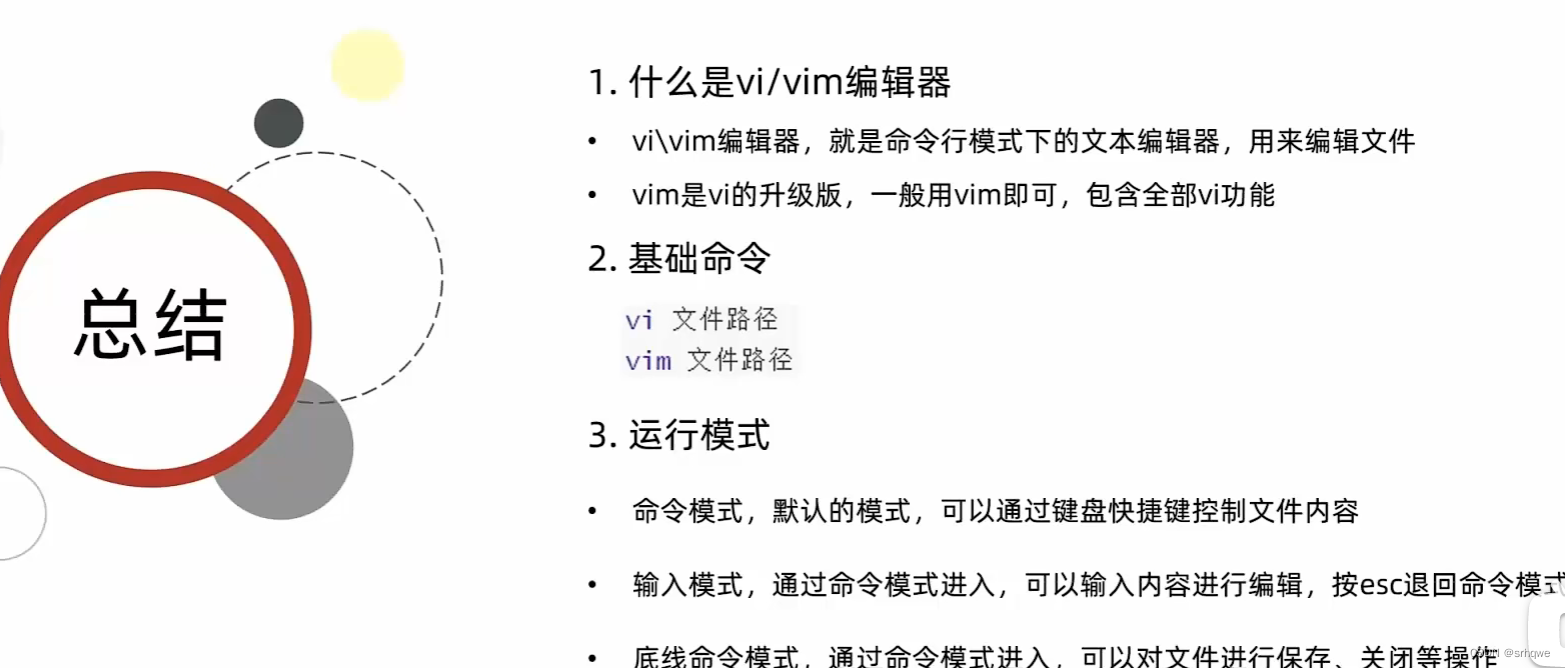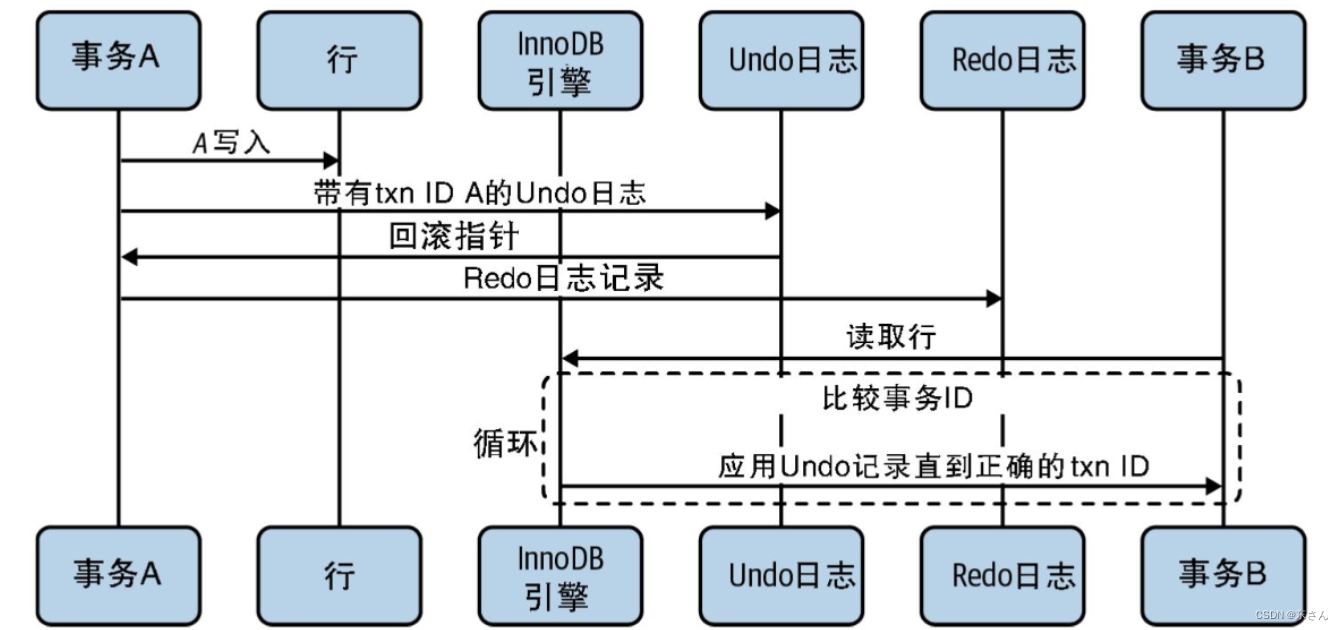目录
A题:
B题
C题
D题
E题
F题
G题
H题
I题
J题
K题
L题
A题:
1.思路:考虑暴力枚举和双hash,可以在O(n)做完。
2.代码实现:
#include<bits/stdc++.h>
#define sz(x) (int) x.size()
#define rep(i,z,n) for(int i = z;i <= n; i++)
#define per(i,n,z) for(int i = n;i >= z; i--)
#define pii pair<int,int>
#define fi first
#define se second
#define vi vector<int>
#define vl vector<ll>
#define pb push_back
#define ull unsigned long long
#define all(x) (x).begin(),(x).end()
#define endl '\n'
#define mp make_pair
using namespace std;
using ll = long long;
const int N = 5e5 + 10;
const ull bas = 133331;
const ll mod1 = 1000000033;
const ll mod2 = 1000000103;
typedef pair<int,int> hashv;
hashv pw[N],s1[N],s2[N];
hashv operator + (hashv a,hashv b)
{
int c1 = a.fi + b.fi,c2 = a.se + b.se;
if(c1 >= mod1) c1 -= mod1;
if(c2 >= mod2) c2 -= mod2;
return mp(c1,c2);
}
hashv operator - (hashv a,hashv b)
{
int c1 = a.fi - b.fi,c2 = a.se - b.se;
if(c1 < 0) c1 += mod1;
if(c2 < 0) c2 += mod2;
return mp(c1,c2);
}
hashv operator * (hashv a,hashv b)
{
int c1 = (ll)a.fi * b.fi % mod1,c2 = (ll) a.se * b.se % mod2;
return mp(c1,c2);
}
void init(string s)
{
int n = sz(s);
string t = s;
reverse(all(t));
t = " " + t;
s = " " + s;
hashv base = mp(10331,100313);
pw[0] = mp(1,1);
rep(i,1,n) {
pw[i] = pw[i - 1] * base;
s1[i] = s1[i - 1] * base + mp(s[i],s[i]);
s2[i] = s2[i - 1] * base + mp(t[i],t[i]);
// pw[i] = pw[i - 1] * bas;
}
}
hashv get1(int l,int r)
{
return s1[r] - s1[l - 1] * pw[r - l + 1];
}
hashv get2(int l,int r)
{
return s2[r] - s2[l - 1] * pw[r - l + 1];
}
void solve(){
string s;
cin >> s;
init(s);
int n = sz(s);
s = " " + s;
vector<int> vis(26);
rep(i,1,n - 1) {
if(vis[s[i] - 'a']) break;
vis[s[i] - 'a'] = true;
int len = n - i;
if(get1(i + 1,n) == get2(1,len)) {
cout << "HE" << endl;
return;
}
}
cout << "NaN" << endl;
}
int main()
{
ios::sync_with_stdio(false);
cin.tie(0),cout.tie(0);
int T = 1;
cin >> T;
while(T --) solve();
}B题
1.思路:暴力枚举+ST表,暴力枚举是调和级数的复杂度。
2.代码实现:
#include<bits/stdc++.h>
#define sz(x) (int) x.size()
#define rep(i,z,n) for(int i = z;i <= n; i++)
#define per(i,n,z) for(int i = n;i >= z; i--)
#define pii pair<int,int>
#define fi first
#define se second
#define vi vector<int>
#define vl vector<ll>
#define pb push_back
#define ull unsigned long long
#define all(x) (x).begin(),(x).end()
#define endl '\n'
#define mp make_pair
using namespace std;
using ll = long long;
const int N = 1e6 + 10;
#include <functional>
#include <numeric>
namespace OY {
template <typename _Tp, typename _Maximum>
class STTable {
std::vector<std::vector<_Tp>> m_sub;
_Maximum m_maxi;
int m_length;
_Tp m_defaultValue;
void _check() {
// assert(m_maxi(m_defaultValue, m_defaultValue) == m_defaultValue);
}
public:
STTable(int __n = 0, _Maximum __maxi = std::max<_Tp>, _Tp __defaultValue = _Tp()) : m_maxi(__maxi), m_defaultValue(__defaultValue) {
_check();
resize(__n);
}
template <typename _Iterator>
STTable(_Iterator __first, _Iterator __last, _Maximum __maxi = std::max<_Tp>, _Tp __defaultValue = _Tp()) : m_maxi(__maxi), m_defaultValue(__defaultValue) {
_check();
reset(__first, __last);
}
void resize(int __n) {
if (!__n) return;
m_length = __n;
int d = 32 - (m_length > 1 ? __builtin_clz(m_length - 1) : 32);
m_sub.resize(d);
m_sub[0].assign(__n, m_defaultValue);
for (int i = 1; i < d; i++) {
m_sub[i].clear();
m_sub[i].reserve(m_length - (1 << i) + 1);
for (int j = 0; j <= m_length - (1 << i); j++)
m_sub[i].push_back(m_maxi(m_sub[i - 1][j], m_sub[i - 1][j + (1 << i - 1)]));
}
}
template <typename _Iterator>
void reset(_Iterator __first, _Iterator __last) {
m_length = __last - __first;
int d = 32 - (m_length > 1 ? __builtin_clz(m_length - 1) : 32);
m_sub.resize(d);
m_sub[0].assign(__first, __last);
for (int i = 1; i < d; i++) {
m_sub[i].clear();
m_sub[i].reserve(m_length - (1 << i) + 1);
for (int j = 0; j <= m_length - (1 << i); j++)
m_sub[i].push_back(m_maxi(m_sub[i - 1][j], m_sub[i - 1][j + (1 << i - 1)]));
}
}
void update(int __i, _Tp __val) {
m_sub[0][__i] = __val;
for (int i = 1; i < m_sub.size(); i++)
for (int j = std::max(0, __i - (1 << i) + 1), end = std::min(__i, int(m_sub[i].size() - 1)); j <= end; j++)
m_sub[i][j] = m_maxi(m_sub[i - 1][j], m_sub[i - 1][j + (1 << i - 1)]);
}
_Tp query(int __i) const {
return m_sub[0][__i];
}
_Tp query(int __left, int __right) const {
if (__left == __right) return m_sub[0][__left];
int d = 31 - __builtin_clz(__right - __left);
return m_maxi(m_sub[d][__left], m_sub[d][__right - (1 << d) + 1]);
}
_Tp queryAll() const {
return query(0, m_length - 1);
}
};
template <typename _Tp = int>
STTable(int = 0, const _Tp &(*)(const _Tp &, const _Tp &) = std::max<_Tp>, _Tp = _Tp()) -> STTable<_Tp, const _Tp &(*)(const _Tp &, const _Tp &)>;
template <typename _Tp = int>
STTable(int, _Tp (*)(_Tp, _Tp), _Tp = _Tp()) -> STTable<_Tp, _Tp (*)(_Tp, _Tp)>;
template <typename _Maximum, typename _Tp = std::decay_t<typename decltype(std::mem_fn(&_Maximum::operator()))::result_type>>
STTable(int, _Maximum, _Tp = _Tp()) -> STTable<_Tp, _Maximum>;
template <typename _Iterator, typename _Maximum, typename _Tp = typename std::iterator_traits<_Iterator>::value_type>
STTable(_Iterator, _Iterator, _Maximum, _Tp = _Tp()) -> STTable<_Tp, _Maximum>;
template <typename _Iterator, typename _Tp = typename std::iterator_traits<_Iterator>::value_type>
STTable(_Iterator, _Iterator, const _Tp &(*)(const _Tp &, const _Tp &) = std::max<_Tp>, _Tp = _Tp()) -> STTable<_Tp, const _Tp &(*)(const _Tp &, const _Tp &)>;
template <typename _Iterator, typename _Tp = typename std::iterator_traits<_Iterator>::value_type>
STTable(_Iterator, _Iterator, _Tp (*)(_Tp, _Tp), _Tp = _Tp()) -> STTable<_Tp, _Tp (*)(_Tp, _Tp)>;
}
int n;
inline char nc() {
static char buf[1000000], *p1 = buf, *p2 = buf;
return p1 == p2 && (p2 = (p1 = buf) + fread (buf, 1, 1000000, stdin), p1 == p2) ? EOF : *p1++;
}
template <class T> inline bool read(T &x) {
x = 0; char c = nc(); bool f(0);
while (c < '0' || c > '9') { if (c == EOF) return false; f = c == '-', c = nc(); }
while (c >= '0' && c <= '9') x = x * 10 + (c ^ 48), c = nc(); if (f) x = -x; return true;
}
int a[N];
void solve(){
read(n);
rep(i,0,n-1) read(a[i]);
auto mymax = [](int x, int y) {
return x > y ? x : y;
};
OY::STTable st_max(a , a + n, mymax);
OY::STTable st_min(a , a + n, std::min);
int ans = 1;
for(int i = 1;i < n;i ++) {
bool ok = true;
for(int j = i;j <= n;j += i) {
if(j == n) break;
int nxt = min(j + i,n);
int v1 = st_max.query(j - i,j - 1);
int v2 = st_min.query(j,nxt - 1);
if(v1 > v2) {
ok = false;
break;
}
}
if(ok) ans ++;
}
cout << ans << endl;
}
int main()
{
ios::sync_with_stdio(false);
cout.tie(0);
int T = 1;
// cin >> T;
while(T --) solve();
}C题
1.思路:考虑验证这个序列,如果出现两个相同的连续超过40的串,那么就认为这个串不随机就行了,错误率就是,实现就是直接kmp搞一下next数组找个最大的看是否大于等于40即可。
2.代码实现:
#include<bits/stdc++.h>
#define sz(x) (int) x.size()
#define rep(i,z,n) for(int i = z;i <= n; i++)
#define per(i,n,z) for(int i = n;i >= z; i--)
#define pii pair<int,int>
#define fi first
#define se second
#define vi vector<int>
#define vl vector<ll>
#define pb push_back
#define all(x) (x).begin(),(x).end()
#define endl '\n'
using namespace std;
using ll = long long;
const int N = 1e6 + 10;
const ll mod = 1e9 + 7;
int a[N],nxt[N];
void get_next(string s)
{
int i = 0,j = -1;
nxt[0] = -1;
int n = s.size();
while(i < n) {
if(j == -1 || s[i] == s[j]) {
i++, j++;
nxt[i] = j;
}
else j = nxt[j];
}
}
void solve(){
string s,t;
s = "";
while(cin >> t) s += t;
get_next(s);
int n = sz(s);
int mx = 0;
for(int i = 1;i <= n;i ++) mx = max(mx,nxt[i]);
if(mx >= 40) cout << "NO" << endl;
else cout << "YES" << endl;
}
int main()
{
ios::sync_with_stdio(false);
cin.tie(0),cout.tie(0);
int T = 1;
// cin >> T;
while(T --) solve();
}D题 不会
E题
1.思路:考虑dp[i][j][k]表示第i行第j列修改了k个问号的最大值是多少,因为数组内存开不了这么大,因此我们考虑优化空间,我们发现这一行的状态只跟这一行和上一行有关,因此可以滚动dp优化空间。
2.代码实现:
#include<bits/stdc++.h>
#define sz(x) (int) x.size()
#define rep(i,z,n) for(int i = z;i <= n; i++)
#define per(i,n,z) for(int i = n;i >= z; i--)
#define pii pair<int,int>
#define fi first
#define se second
#define vi vector<int>
#define vl vector<ll>
#define pb push_back
#define ull unsigned long long
#define all(x) (x).begin(),(x).end()
#define endl '\n'
#define mp make_pair
using namespace std;
using ll = long long;
const int N = 501;
int n;
inline char nc() {
static char buf[1000000], *p1 = buf, *p2 = buf;
return p1 == p2 && (p2 = (p1 = buf) + fread (buf, 1, 1000000, stdin), p1 == p2) ? EOF : *p1++;
}
template <class T> inline bool read(T &x) {
x = 0; char c = nc(); bool f(0);
while (c < '0' || c > '9') { if (c == EOF) return false; f = c == '-', c = nc(); }
while (c >= '0' && c <= '9') x = x * 10 + (c ^ 48), c = nc(); if (f) x = -x; return true;
}
int a[N];
string s[N];
void solve(){
int m,x;
cin >> n >> m >> x;
rep(i,1,n) {
cin >> s[i];
s[i] = " " + s[i];
}
vector<vector<int>> odp(m + 1,vector<int>(x + 1));
odp[1][0] = (s[1][1] == '1');
if(s[1][1] == '?' && x >= 1) odp[1][1] = 1;
rep(j,1,m) {
rep(k,0,x) {
int v = s[1][j] == '1';
odp[j][k] = max(odp[j - 1][k] + v,odp[j][k]);
if(s[1][j] == '?' && k + 1 <= x) odp[j][k + 1] = max(odp[j - 1][k] + 1,odp[j][k + 1]);
}
}
rep(i,2,n) {
vector<vector<int>> ndp(m + 1,vector<int>(x + 1));
rep(j,1,m) {
vector<int> dp(x + 1,0);
rep(k,0,x) {
int v = s[i][j] == '1';
dp[k] = max(ndp[j - 1][k] + v,dp[k]);
if(s[i][j] == '?' && k + 1 <= x) dp[k + 1] = max(dp[k + 1],ndp[j - 1][k] + 1);
ndp[j][k] = max(ndp[j][k],odp[j][k] + v);
if(s[i][j] == '?' && k + 1 <= x) ndp[j][k + 1] = max(ndp[j][k + 1],odp[j][k] + 1);
}
rep(k,0,x) ndp[j][k] = max(ndp[j][k],dp[k]);
}
swap(ndp,odp);
}
int ans = 0;
rep(i,0,x) ans = max(ans,odp[m][i]);
cout << ans << '\n';
}
int main()
{
ios::sync_with_stdio(false);
cout.tie(0),cin.tie(0);
int T = 1;
cin >> T;
while(T --) solve();
}F题
1.思路:因为是任意i,j相差取min和max,因此考虑直接排序选k个中最大和最小的一直取min就是答案,考虑用multiset维护即可。
2.代码实现
#include<bits/stdc++.h>
#define sz(x) (int) x.size()
#define rep(i,z,n) for(int i = z;i <= n; i++)
#define per(i,n,z) for(int i = n;i >= z; i--)
#define pii pair<int,int>
#define fi first
#define se second
#define vi vector<int>
#define vl vector<ll>
#define pb push_back
#define ull unsigned long long
#define all(x) (x).begin(),(x).end()
#define endl '\n'
#define mp make_pair
using namespace std;
using ll = long long;
const int N = 5e5 + 10;
int n;
inline char nc() {
static char buf[1000000], *p1 = buf, *p2 = buf;
return p1 == p2 && (p2 = (p1 = buf) + fread (buf, 1, 1000000, stdin), p1 == p2) ? EOF : *p1++;
}
template <class T> inline bool read(T &x) {
x = 0; char c = nc(); bool f(0);
while (c < '0' || c > '9') { if (c == EOF) return false; f = c == '-', c = nc(); }
while (c >= '0' && c <= '9') x = x * 10 + (c ^ 48), c = nc(); if (f) x = -x; return true;
}
int a[N];
void solve(){
int n,k;
cin >> n >> k;
rep(i,1,n) cin >> a[i];
sort(a + 1,a + 1 + n);
multiset<int> mt;
ll ans = 2e18;
rep(i,1,n) {
if(i > 1) mt.insert(a[i] - a[i - 1]);
if(i > k) mt.erase(mt.find(a[i - k + 1] - a[i - k]));
if(i >= k) {
int mx = a[i] - a[i - k + 1];
int mi = *mt.begin();
// cout << i << ',' << mi << ',' << mx << endl;
ans = min(ans,1ll * mi * mx);
}
}
cout << ans << endl;
}
int main()
{
ios::sync_with_stdio(false);
cout.tie(0),cin.tie(0);
int T = 1;
// cin >> T;
while(T --) solve();
}G题
1.思路:模拟题,考虑特判1的情况就可以了。
2.代码实现:
#include<bits/stdc++.h>
#define sz(x) (int) x.size()
#define rep(i,z,n) for(int i = z;i <= n; i++)
#define per(i,n,z) for(int i = n;i >= z; i--)
#define pii pair<int,int>
#define fi first
#define se second
#define vi vector<int>
#define vl vector<ll>
#define pb push_back
#define ull unsigned long long
#define all(x) (x).begin(),(x).end()
#define endl '\n'
#define mp make_pair
using namespace std;
using ll = long long;
const int N = 5e5 + 10;
int n;
inline char nc() {
static char buf[1000000], *p1 = buf, *p2 = buf;
return p1 == p2 && (p2 = (p1 = buf) + fread (buf, 1, 1000000, stdin), p1 == p2) ? EOF : *p1++;
}
template <class T> inline bool read(T &x) {
x = 0; char c = nc(); bool f(0);
while (c < '0' || c > '9') { if (c == EOF) return false; f = c == '-', c = nc(); }
while (c >= '0' && c <= '9') x = x * 10 + (c ^ 48), c = nc(); if (f) x = -x; return true;
}
int a[N];
string ans[14];
string num[15][100];
string unum[12][100];
void init2()
{
unum[0][1] = ".....";
unum[0][2] = "00000";
unum[0][3] = "0...0";
unum[0][4] = "0...0";
unum[0][5] = "0...0";
unum[0][6] = "00000";
unum[0][7] = ".....";
unum[0][8] = ".....";
unum[0][9] = ".....";
unum[0][10] = ".....";
unum[1][1] = ".....";
unum[1][2] = "....1";
unum[1][3] = "....1";
unum[1][4] = "....1";
unum[1][5] = "....1";
unum[1][6] = "....1";
unum[1][7] = ".....";
unum[1][8] = ".....";
unum[1][9] = ".....";
unum[1][10] = ".....";
unum[2][1] = ".....";
unum[2][2] = "22222";
unum[2][3] = "....2";
unum[2][4] = "22222";
unum[2][5] = "2....";
unum[2][6] = "22222";
unum[2][7] = ".....";
unum[2][8] = ".....";
unum[2][9] = ".....";
unum[2][10] = ".....";
unum[3][1] = ".....";
unum[3][2] = "33333";
unum[3][3] = "....3";
unum[3][4] = "33333";
unum[3][5] = "....3";
unum[3][6] = "33333";
unum[3][7] = ".....";
unum[3][8] = ".....";
unum[3][9] = ".....";
unum[3][10] = ".....";
unum[4][1] = ".....";
unum[4][2] = "4...4";
unum[4][3] = "4...4";
unum[4][4] = "44444";
unum[4][5] = "....4";
unum[4][6] = "....4";
unum[4][7] = ".....";
unum[4][8] = ".....";
unum[4][9] = ".....";
unum[4][10] = ".....";
unum[5][1] = ".....";
unum[5][2] = "55555";
unum[5][3] = "5....";
unum[5][4] = "55555";
unum[5][5] = "....5";
unum[5][6] = "55555";
unum[5][7] = ".....";
unum[5][8] = ".....";
unum[5][9] = ".....";
unum[5][10] = ".....";
unum[6][1] = ".....";
unum[6][2] = "66666";
unum[6][3] = "6....";
unum[6][4] = "66666";
unum[6][5] = "6...6";
unum[6][6] = "66666";
unum[6][7] = ".....";
unum[6][8] = ".....";
unum[6][9] = ".....";
unum[6][10] = ".....";
unum[7][1] = ".....";
unum[7][2] = "77777";
unum[7][3] = "....7";
unum[7][4] = "....7";
unum[7][5] = "....7";
unum[7][6] = "....7";
unum[7][7] = ".....";
unum[7][8] = ".....";
unum[7][9] = ".....";
unum[7][10] = ".....";
unum[8][1] = ".....";
unum[8][2] = "88888";
unum[8][3] = "8...8";
unum[8][4] = "88888";
unum[8][5] = "8...8";
unum[8][6] = "88888";
unum[8][7] = ".....";
unum[8][8] = ".....";
unum[8][9] = ".....";
unum[8][10] = ".....";
unum[9][1] = ".....";
unum[9][2] = "99999";
unum[9][3] = "9...9";
unum[9][4] = "99999";
unum[9][5] = "....9";
unum[9][6] = "99999";
unum[9][7] = ".....";
unum[9][8] = ".....";
unum[9][9] = ".....";
unum[9][10] = ".....";
}
//处理下面的数字
void init()
{
num[0][1] = ".......";
num[0][2] = ".......";
num[0][3] = "0000000";
num[0][4] = "0.....0";
num[0][5] = "0.....0";
num[0][6] = "0.....0";
num[0][7] = "0.....0";
num[0][8] = "0.....0";
num[0][9] = "0000000";
num[0][10] = ".......";
num[1][1] = ".......";
num[1][2] = ".......";
num[1][3] = "......1";
num[1][4] = "......1";
num[1][5] = "......1";
num[1][6] = "......1";
num[1][7] = "......1";
num[1][8] = "......1";
num[1][9] = "......1";
num[1][10] = ".......";
num[2][1] = ".......";
num[2][2] = ".......";
num[2][3] = "2222222";
num[2][4] = "......2";
num[2][5] = "......2";
num[2][6] = "2222222";
num[2][7] = "2......";
num[2][8] = "2......";
num[2][9] = "2222222";
num[2][10] = ".......";
num[3][1] = ".......";
num[3][2] = ".......";
num[3][3] = "3333333";
num[3][4] = "......3";
num[3][5] = "......3";
num[3][6] = "3333333";
num[3][7] = "......3";
num[3][8] = "......3";
num[3][9] = "3333333";
num[3][10] = ".......";
num[4][1] = ".......";
num[4][2] = ".......";
num[4][3] = "4.....4";
num[4][4] = "4.....4";
num[4][5] = "4.....4";
num[4][6] = "4444444";
num[4][7] = "......4";
num[4][8] = "......4";
num[4][9] = "......4";
num[4][10] = ".......";
num[5][1] = ".......";
num[5][2] = ".......";
num[5][3] = "5555555";
num[5][4] = "5......";
num[5][5] = "5......";
num[5][6] = "5555555";
num[5][7] = "......5";
num[5][8] = "......5";
num[5][9] = "5555555";
num[5][10] = ".......";
num[6][1] = ".......";
num[6][2] = ".......";
num[6][3] = "6666666";
num[6][4] = "6......";
num[6][5] = "6......";
num[6][6] = "6666666";
num[6][7] = "6.....6";
num[6][8] = "6.....6";
num[6][9] = "6666666";
num[6][10] = ".......";
num[7][1] = ".......";
num[7][2] = ".......";
num[7][3] = "7777777";
num[7][4] = "......7";
num[7][5] = "......7";
num[7][6] = "......7";
num[7][7] = "......7";
num[7][8] = "......7";
num[7][9] = "......7";
num[7][10] = ".......";
num[8][1] = ".......";
num[8][2] = ".......";
num[8][3] = "8888888";
num[8][4] = "8.....8";
num[8][5] = "8.....8";
num[8][6] = "8888888";
num[8][7] = "8.....8";
num[8][8] = "8.....8";
num[8][9] = "8888888";
num[8][10] = ".......";
num[9][1] = ".......";
num[9][2] = ".......";
num[9][3] = "9999999";
num[9][4] = "9.....9";
num[9][5] = "9.....9";
num[9][6] = "9999999";
num[9][7] = "......9";
num[9][8] = "......9";
num[9][9] = "9999999";
num[9][10] = ".......";
//I
num[10][1] = ".......";
num[10][2] = ".......";
num[10][3] = "IIIIIII";
num[10][4] = "...I...";
num[10][5] = "...I...";
num[10][6] = "...I...";
num[10][7] = "...I...";
num[10][8] = "...I...";
num[10][9] = "IIIIIII";
num[10][10] = ".......";
//N
num[11][1] = ".......";
num[11][2] = ".......";
num[11][3] = "N.....N";
num[11][4] = "NN....N";
num[11][5] = "N.N...N";
num[11][6] = "N..N..N";
num[11][7] = "N...N.N";
num[11][8] = "N....NN";
num[11][9] = "N.....N";
num[11][10] = ".......";
//F
num[12][1] = ".......";
num[12][2] = ".......";
num[12][3] = "FFFFFFF";
num[12][4] = "F......";
num[12][5] = "F......";
num[12][6] = "FFFFFFF";
num[12][7] = "F......";
num[12][8] = "F......";
num[12][9] = "F......";
num[12][10] = ".......";
//=
num[13][1] = ".......";
num[13][2] = ".......";
num[13][3] = ".......";
num[13][4] = ".......";
num[13][5] = "=======";
num[13][6] = ".......";
num[13][7] = "=======";
num[13][8] = ".......";
num[13][9] = ".......";
num[13][10] = ".......";
}
void add1(int idx)
{
rep(i,1,10) ans[i] += '.';
rep(i,1,10) ans[i] += num[idx][i];
}
void add2(int idx)
{
rep(i,1,10) ans[i] += '.';
rep(i,1,10) ans[i] += unum[idx][i];
}
void dispose1(ll x)
{
vector<int> nums;
while(x) {
nums.pb(x % 10);
x /= 10;
}
reverse(all(nums));
for(int i = 0;i < sz(nums);i ++) add1(nums[i]);
}
void dispose2(ll x)
{
vector<int> nums;
while(x) {
nums.pb(x % 10);
x /= 10;
}
reverse(all(nums));
for(int i = 0;i < sz(nums);i ++) add2(nums[i]);
add1(13);
}
void dispose3(ll x,bool lim)
{
if(lim) {
add1(10);
add1(11);
add1(12);
}
else dispose1(x);
}
void dispose4()
{
rep(i,1,10) ans[i] += '.';
}
void solve(){
rep(i,1,10) ans[i].clear();
string s;
ll x = 0,y = 0;
cin >> s;
int vis = 0;
for(int i = 0;i < sz(s);i ++) {
if(s[i] == '^' || s[i] == '{' || s[i] == '}') {
vis ++;
continue;
}
if(vis == 0) x = x * 10 + s[i] - '0';
else y = y * 10 + s[i] - '0';
}
bool lim = false;
dispose1(x);
dispose2(y);
ll tv = 1;
rep(i,1,y) {
if(x == 1) break;
if((__int128)tv * x > 1e18) {
lim = true;
break;
}
tv *= x;
}
dispose3(tv,lim);
dispose4();
rep(i,1,10) cout << ans[i] << '\n';
}
int main()
{
ios::sync_with_stdio(false);
cout.tie(0),cin.tie(0);
init();
init2();
int T = 1;
cin >> T;
while(T --) solve();
}H题
1.思路:找的规律
2.代码实现:
#include<bits/stdc++.h>
#define sz(x) (int) x.size()
#define rep(i,z,n) for(int i = z;i <= n; i++)
#define per(i,n,z) for(int i = n;i >= z; i--)
#define pii pair<int,int>
#define fi first
#define se second
#define vi vector<int>
#define vl vector<ll>
#define pb push_back
#define ull unsigned long long
#define all(x) (x).begin(),(x).end()
#define endl '\n'
#define mp make_pair
using namespace std;
using ll = long long;
const int N = 5e5 + 10;
int n;
inline char nc() {
static char buf[1000000], *p1 = buf, *p2 = buf;
return p1 == p2 && (p2 = (p1 = buf) + fread (buf, 1, 1000000, stdin), p1 == p2) ? EOF : *p1++;
}
template <class T> inline bool read(T &x) {
x = 0; char c = nc(); bool f(0);
while (c < '0' || c > '9') { if (c == EOF) return false; f = c == '-', c = nc(); }
while (c >= '0' && c <= '9') x = x * 10 + (c ^ 48), c = nc(); if (f) x = -x; return true;
}
int a[N];
void solve(){
int n,k;
cin >> n >> k;
cout << n - min(2 * n,k - 1) / 2 << ' ' << n + (min(2 * n,k - 1) + 1) / 2 << endl;
}
int main()
{
ios::sync_with_stdio(false);
cout.tie(0),cin.tie(0);
int T = 1;
cin >> T;
while(T --) solve();
}I题
1.思路:考虑x序列和y序列的特殊性,我们容易手搓出来最多每个格子只会被cover两次,因此我们考虑用扫描线处理这个问题,考虑答案求解,我们可以反着求答案用总数减去非纯色矩阵即可。考虑非纯色矩阵的构成,说明这个矩阵中有点被覆盖了,我们直接减去被矩形边覆盖的点数,问题转变为我们直接减去交点数即可,因此用树状数组维护一下单点修改区间查询即可。
2.代码实现:
#include<bits/stdc++.h>
#define sz(x) (int) x.size()
#define rep(i,z,n) for(int i = z;i <= n; i++)
#define per(i,n,z) for(int i = n;i >= z; i--)
#define pii pair<int,int>
#define fi first
#define se second
#define vi vector<int>
#define vl vector<ll>
#define pb push_back
#define all(x) (x).begin(),(x).end()
#define endl '\n'
using namespace std;
using ll = long long;
const int N = 1e6 + 10;
pii a[N];
template <typename T>
struct Fenwick {
const int n;
std::vector<T> a;
Fenwick (int n) : n(n), a(n + 1) {}
void add(int pos, int x) {
for (int i = pos; i <= n; i += i & -i) {
a[i] += x;
}
}
T query(int x) {
T res = 0;
for (int i = x; i; i -= i & -i) {
res += a[i];
}
return res;
}
T query(int l, int r) {
if (l == 0 || l > r) {
return 0;
}
return query(r) - query(l - 1);
}
};
inline char nc() {
static char buf[1000000], *p1 = buf, *p2 = buf;
return p1 == p2 && (p2 = (p1 = buf) + fread (buf, 1, 1000000, stdin), p1 == p2) ? EOF : *p1++;
}
template <class T> inline bool read(T &x) {
x = 0; char c = nc(); bool f(0);
while (c < '0' || c > '9') { if (c == EOF) return false; f = c == '-', c = nc(); }
while (c >= '0' && c <= '9') x = x * 10 + (c ^ 48), c = nc(); if (f) x = -x; return true;
}
void solve(){
int n;
read(n);
rep(i,1,n) {
int x1,y1,x2,y2;
read(x1),read(y1);
read(x2),read(y2);
a[y1] = {x1,x2};
a[y2] = {-x1,-x2};
}
Fenwick<int> fen(2 * n);
ll ans = 0;
rep(i,1,2*n) {
int L = a[i].fi,R = a[i].se;
if(L < 0) {
L = -L,R = -R;
fen.add(L,-1);
fen.add(R,-1);
}
else {
fen.add(L,1);
fen.add(R,1);
}
ans = ans + 2 * n - (R - L + 1) - fen.query(2 * n) + fen.query(L,R);
}
cout << ans << endl;
}
int main()
{
int T = 1;
// cin >> T;
while(T --) solve();
}J题 不会
K题
1.思路:考虑2为质数这个特性,我们尽可能把数差为2的构造,发现无论计数情况和偶数情况我们都能够剩下2和n-1这两个数,对于2这个数我们可以插入到4和6中间,n-1这个数我们可以插入到n-3和n-5中间去。小于10的话写个dfs就行了。
2.代码实现:
#include<bits/stdc++.h>
#define sz(x) (int) x.size()
#define rep(i,z,n) for(int i = z;i <= n; i++)
#define per(i,n,z) for(int i = n;i >= z; i--)
#define pii pair<int,int>
#define fi first
#define se second
#define vi vector<int>
#define vl vector<ll>
#define pb push_back
#define ull unsigned long long
#define all(x) (x).begin(),(x).end()
#define endl '\n'
#define mp make_pair
using namespace std;
using ll = long long;
const int N = 5e5 + 10;
inline char nc() {
static char buf[1000000], *p1 = buf, *p2 = buf;
return p1 == p2 && (p2 = (p1 = buf) + fread (buf, 1, 1000000, stdin), p1 == p2) ? EOF : *p1++;
}
template <class T> inline bool read(T &x) {
x = 0; char c = nc(); bool f(0);
while (c < '0' || c > '9') { if (c == EOF) return false; f = c == '-', c = nc(); }
while (c >= '0' && c <= '9') x = x * 10 + (c ^ 48), c = nc(); if (f) x = -x; return true;
}
struct Primes {
bitset <N> st;
int cnt,primes[N],idx[N],n;
Primes(int n = N - 1) {
this->n = n;
init(n);
}
void init(int n) {
st[0] = st[1] = 1;
for(int i = 2;i <= n;i ++) {
if(!st[i]) {
primes[++ cnt] = i;
idx[i] = cnt;
}
for(int j = 1;primes[j] <= n / i;j ++) {
st.flip(primes[j] * i);
if(i % primes[j] == 0) break;
}
}
}
//判断x是否是质数
bool isPrime(int x) {
assert(x <= n);
return !st[x];
}
//求解x在质数表是第几个
bool atIndex(int x) {
assert(!st[x]);
assert(x <= n);
return idx[x];
}
}pr(1e5);
int n,vis[11],ans[N];
inline void dfs(int f)
{
if(f == n + 1) {
if(pr.isPrime(abs(ans[f - 1] - ans[1]))) {
rep(i,1,n) cout << ans[i] << ' ';
exit(0);
}
return ;
}
rep(i,1,n) {
if(!vis[i]) {
if(f > 1 && !pr.isPrime(abs(i - ans[f - 1]))) continue;
vis[i] = true;
ans[f] = i;
dfs(f + 1);
vis[i] = false;
}
}
}
void solve(){
cin >> n;
//10! = 40320*9*10
if(n <= 10) {
dfs(1);
cout << -1 << endl;
return;
}
if(n & 1) {
int cnt = 0;
for(int i = 1;i <= n;i += 2) ans[++ cnt] = i;
for(int i = n - 3;i >= 4;i -= 2) ans[++ cnt] = i;
//剩下n-1和2
int ok1 = false,ok2 = false;
rep(i,1,cnt - 1) {
bool same = false;
if(!ok1 && pr.isPrime(abs(n - 1 - ans[i])) && pr.isPrime(abs(n - 1 - ans[i + 1]))) {
ok1 = i;
same = true;
}
if(!same && !ok2 && pr.isPrime(abs(2 - ans[i])) && pr.isPrime(abs(2 - ans[i + 1]))) {
ok2 = i;
}
}
bool same = false;
if(!ok1 && pr.isPrime(abs(n - 1 - ans[cnt])) && pr.isPrime(abs(n - 1 - ans[1]))) {
ok2 = n;
same = true;
}
if(!same && !ok2 && pr.isPrime(abs(2 - ans[cnt])) && pr.isPrime(abs(2 - ans[1]))) {
ok2 = n;
}
assert(ok1 != ok2);
rep(i,1,cnt) {
cout << ans[i] << ' ';
if(i == ok1) cout << n - 1 << ' ';
if(i == ok2) cout << 2 << ' ';
}
cout << endl;
}
else {
int cnt = 0;
for(int i = 1;i <= n - 3;i += 2) ans[++ cnt] = i;
for(int i = n;i >= 4;i -= 2) ans[++ cnt] = i;
//剩下n-1和2
int ok1 = false,ok2 = false;
rep(i,1,cnt - 1) {
bool same = false;
if(!ok1 && pr.isPrime(abs(n - 1 - ans[i])) && pr.isPrime(abs(n - 1 - ans[i + 1]))) {
ok1 = i;
same = true;
}
if(!same && !ok2 && pr.isPrime(abs(2 - ans[i])) && pr.isPrime(abs(2 - ans[i + 1]))) {
ok2 = i;
}
}
bool same = false;
if(!ok1 && pr.isPrime(abs(n - 1 - ans[cnt])) && pr.isPrime(abs(n - 1 - ans[1]))) {
ok2 = n;
same = true;
}
if(!same && !ok2 && pr.isPrime(abs(2 - ans[cnt])) && pr.isPrime(abs(2 - ans[1]))) {
ok2 = n;
}
assert(ok1 != ok2);
rep(i,1,cnt) {
cout << ans[i] << ' ';
if(i == ok1) cout << n - 1 << ' ';
if(i == ok2) cout << 2 << ' ';
}
cout << endl;
}
}
int main()
{
ios::sync_with_stdio(false);
cout.tie(0),cin.tie(0);
int T = 1;
// cin >> T;
while(T --) solve();
}